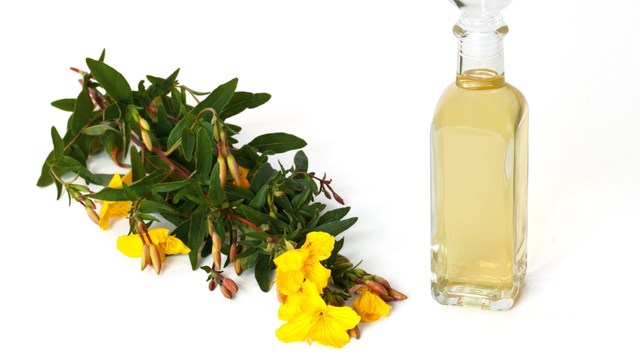 Heike Brauer/PhotoSpin
Heike Brauer/PhotoSpin
Hot flashes, insomnia, mood swings, and other symptoms often come with menopause. A variety of supplements claim to help with these menopausal symptoms.
But do they work? Supplements are rarely tested thoroughly, and many claims made by manufacturers aren't always supported by science.
Here’s a look at several supplements and research about their effectiveness on menopausal symptoms.
Black cohosh:
The extract of the black cohosh plant’s root
When it comes to hot flashes, several studies compared it with a placebo and found that black cohosh helps. However, wrote WebMD, "Other studies haven't found a benefit."
Dong quai:
An herb said to mimic the body’s estrogen
Dong quai has been used for thousands of years in Chinese medicine as treatment for women's health. But a modern study of dong quai looked at its effects on menopausal hot flashes and found no benefits.
Evening primrose oil:
Oil extracted from the seeds of a yellow-flowered plant
Little research on evening primrose oil has been done. In fact, Health.com reported that in a 2009 review in American Family Physician, just one study comparing primrose oil and placebo in menopausal women has been done. The study found that evening primrose oil was no better than the placebo in treating hot flashes.
Ginkgo biloba:
The extract of the ginkgo plant’s leaves
Ginkgo is well-known for improving memory, concentration and mood. All of these can be affected by menopause. Yet several studies have found no evidence that ginkgo can help menopausal women suffering from memory loss, concentration and mood swings.
Hops:
The flower clusters of the Humulus lupulus plant
Hops are another supplement with extremely limited research behind it. There has been only one controlled trial studying 8-PN's potential effects. 8-PN is an estrogenic compound in hops. The controlled trial found that there were favorable results reducing menopausal symptoms including hot flashes.
Red clover:
An extract of a legume that contains substances that mimic estrogen
Research results from red clover have been mixed when it comes to easing menopausal symptoms.
Soy:
A protein found in foods such as tofu, edamame and soy milk
Many menopausal women look to soy to help with hot flashes. Unfortunately they may not find much relief.
No conclusive evidence of effectiveness was found from the use of soy isoflavones to reduce hot flashes in frequency or severity in a 2009 review of randomized controlled trials.
Wild Yam:
The extract of pale-brown vine native to North America
Some of their natural compounds are similar to progesterone and estrogen. But here’s the rub, they might not be active in people. No evidence of decreasing menopause symptoms has been found in clinical studies.
It’s important to talk with your doctor before taking any supplements. All supplements have potential side effects and may adversely interact with some medication.
Sources:
"11 Supplements for Menopause Symptoms: Slideshow From WebMD." WebMD. WebMD, n.d. Web. 26 Nov. 2013.
http://www.webmd.com/vitamins-and-supplements/lifestyle-guide-11/slideshow-menopause?ecd=wnl_wmh_110113&ctr=wnl-wmh-110113_hdln_2&mb=
"Can Supplements Ease Menopause Symptoms?" - Health.com. N.p., n.d. Web. 26 Nov. 2013.
http://www.health.com/health/gallery/0,,20347965,00.html
"Health Centers." Herbs for Menopause, Menopause Symptoms, Menopause Treatment. N.p., n.d. Web. 26 Nov. 2013.
http://www.drweil.com/drw/u/ART00700/menopause-symptoms
Macher, Michael. "Can Supplements Ease Menopause Symptoms?" The Huffington Post. TheHuffingtonPost.com, 23 July 2010. Web. 26 Nov. 2013.
http://www.huffingtonpost.com/2010/07/23/can-supplements-ease-meno_n_656762.html
"Menopause Survival Guide." The Dr. Oz Show. N.p., n.d. Web. 26 Nov. 2013.
http://www.doctoroz.com/videos/menopause-survival-guide?page=2
Reviewed November 29, 2013
by Michele Blacksberg RN
Edited by Jody Smith





Add a Comment1 Comments
This is the stupidest article I've ever read on herbs.
Start googling studies done in European countries and you'll get an entirely different perspective.
December 1, 2013 - 8:22amPeople have been using herbs for thousands of years.
They are cheap and effective.
Of course doctors aren't going to support them, no kickbacks!
This is poorly written... "herbs might work, but this doctor or report says they don't."
If you're going to publish an article, make a stance for yourself, and then do your homework.
And PS... wikipedia is for 5th graders.
This Comment